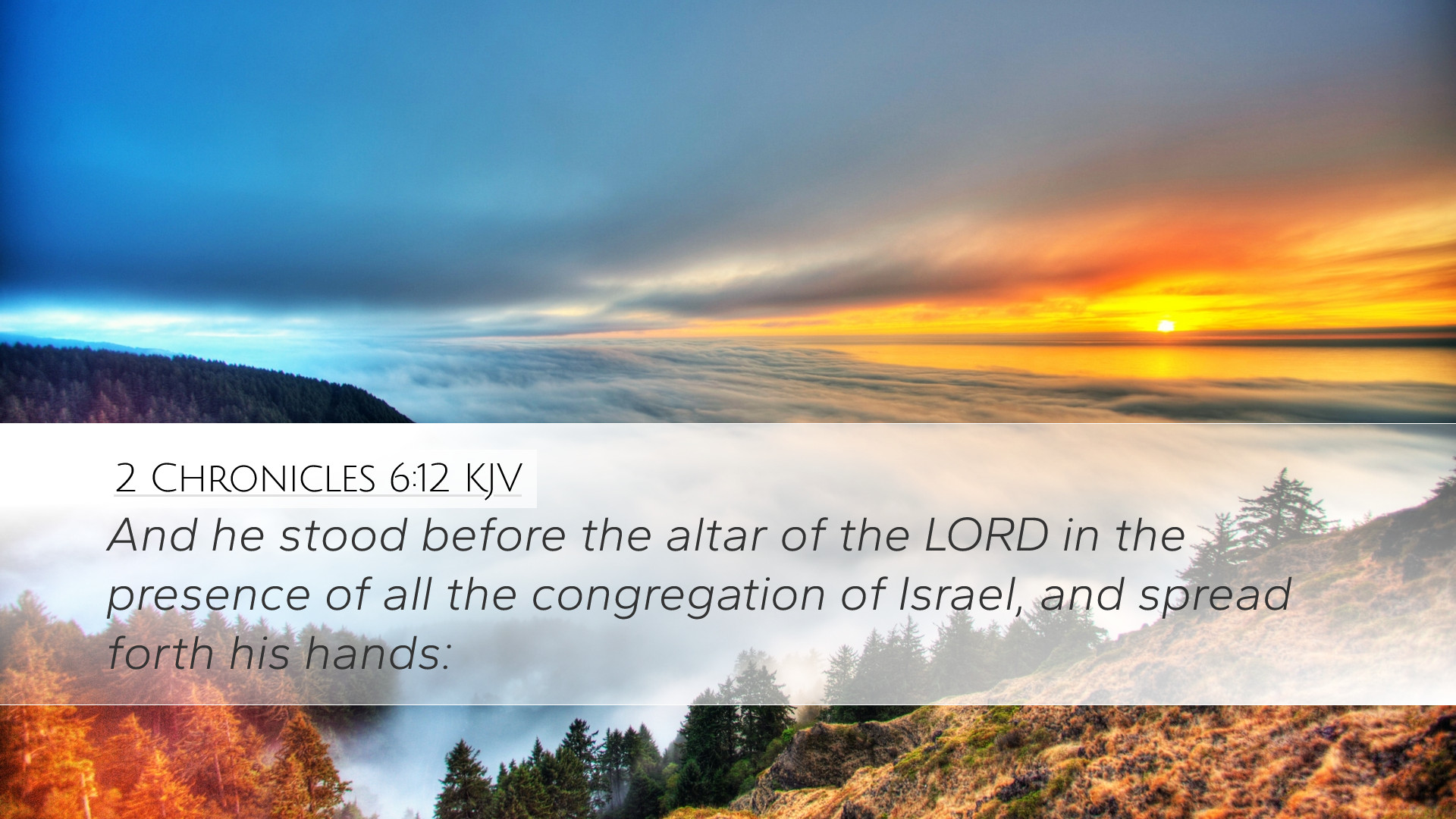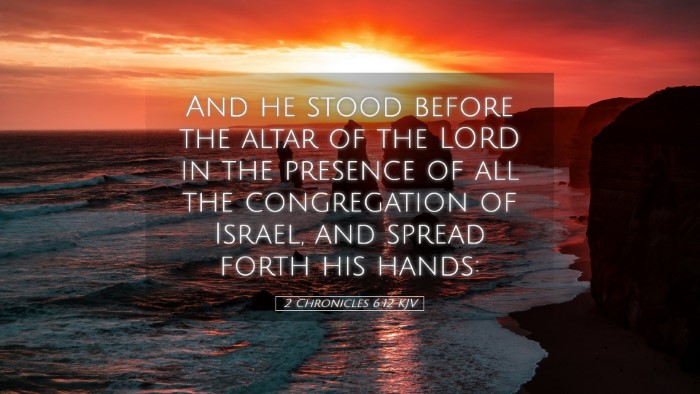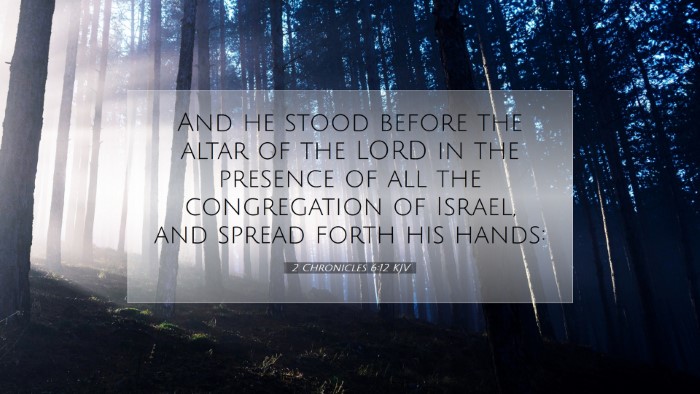Commentary on 2 Chronicles 6:12
Verse Reference: 2 Chronicles 6:12 - “Then Solomon stood before the altar of the LORD in the presence of all the congregation of Israel, and spread forth his hands.”
Introduction
This verse serves as a pivotal moment in the narrative of Solomon's dedication of the temple. Both a historical account and a theological assertion, it lays the groundwork for understanding the significance of Solomon’s temple in the context of Israel’s relationship with God. The prominence of prayer, community, and divine presence showcased in this passage provides rich material for scholarly examination.
Contextual Analysis
The context of 2 Chronicles 6 is the culmination of Solomon’s efforts in constructing the temple. This chapter captures the moment when Solomon addresses the assembled people, offering a prayer that reflects his understanding of God’s holiness and the role of the temple as a sacred space.
Historical Background
Solomon’s reign marked a significant period of prosperity and peace for Israel. The construction of the temple was not merely a political statement but a spiritual necessity. The temple represented the dwelling place of God among His people, as promised to David. Solomon’s role as king was deeply intertwined with his responsibility as a mediator between God and Israel.
Literary Structure
This verse introduces a series of petitions and supplications that Solomon will later elaborate on. The act of standing before the altar suggests authority and dedication, setting a serious tone for the prayer that follows.
Theological Insights
The act of Solomon standing before the altar signifies several theological principles that are vital for understanding the relationship between God and His people.
Significance of Standing Before the Altar
To stand before the altar is to be in a posture of supplication and reverence. The altar represents the means of atonement and communion with God. By placing himself there, Solomon acknowledges God’s sovereignty and expresses humility.
Community Involvement
Solomon’s action occurs in the presence of “all the congregation of Israel.” This highlights the communal aspect of worship within Israel’s religious practice. The collective involvement of the people signifies their unity in purpose and faith.
Commentary Insights
Matthew Henry’s Commentary: Henry draws attention to Solomon’s role as the newly appointed king who embodied the aspirations of Israel. He emphasizes the importance of prayer and the need for divine assistance in leadership. Henry notes that Solomon’s extended hands symbolize openness to God and a posture of earnest prayer.
Albert Barnes’ Notes: Barnes notes the symbolism of the act. For Barnes, the physical act of spreading forth hands demonstrates a reliance on God. It serves as an intimate gesture of beseeching the Lord's favor and blessing upon the nation. He connects this physical posture to the spiritual need for God’s guidance and mercy.
Adam Clarke’s Commentary: Clarke provides insights on the cultural and religious implications of this moment. He affirms that Solomon’s actions were steeped in ancient Near Eastern traditions of supplication, yet distinctly align with Israel’s understanding of monotheism and covenantal relationship with God. Moreover, he interprets this act as a pivotal moment in establishing the temple as a focal point for Israel's worship and national identity.
Applications for Faith Communities
This verse and its surrounding context offer profound applications for contemporary faith communities:
- Prayer as a Central Practice: The act of standing in prayer invites faith communities to recognize the importance of prayer in collective worship settings.
- Leadership and Spiritual Responsibility: Solomon’s positioning shows that leaders must also approach God with humility and dependence on divine guidance.
- Community and Worship: The involvement of the whole congregation reminds us that worship is not an isolated activity but a communal endeavor that encourages unity in faith.
- God’s Presence: Understanding the temple as God’s dwelling place allows believers to reflect on where and how they perceive God’s presence in their lives today.
Conclusion
2 Chronicles 6:12 encapsulates a moment of deep spiritual significance, merging history, theology, and communal worship. Solomon’s act of standing before the altar, in the presence of all Israel, challenges us to consider our own posture in prayer and worship today. As leaders and congregants engage in prayerful practices, reflecting on this passage allows for growth in faith, unity, and understanding of God’s continuous work among His people.


